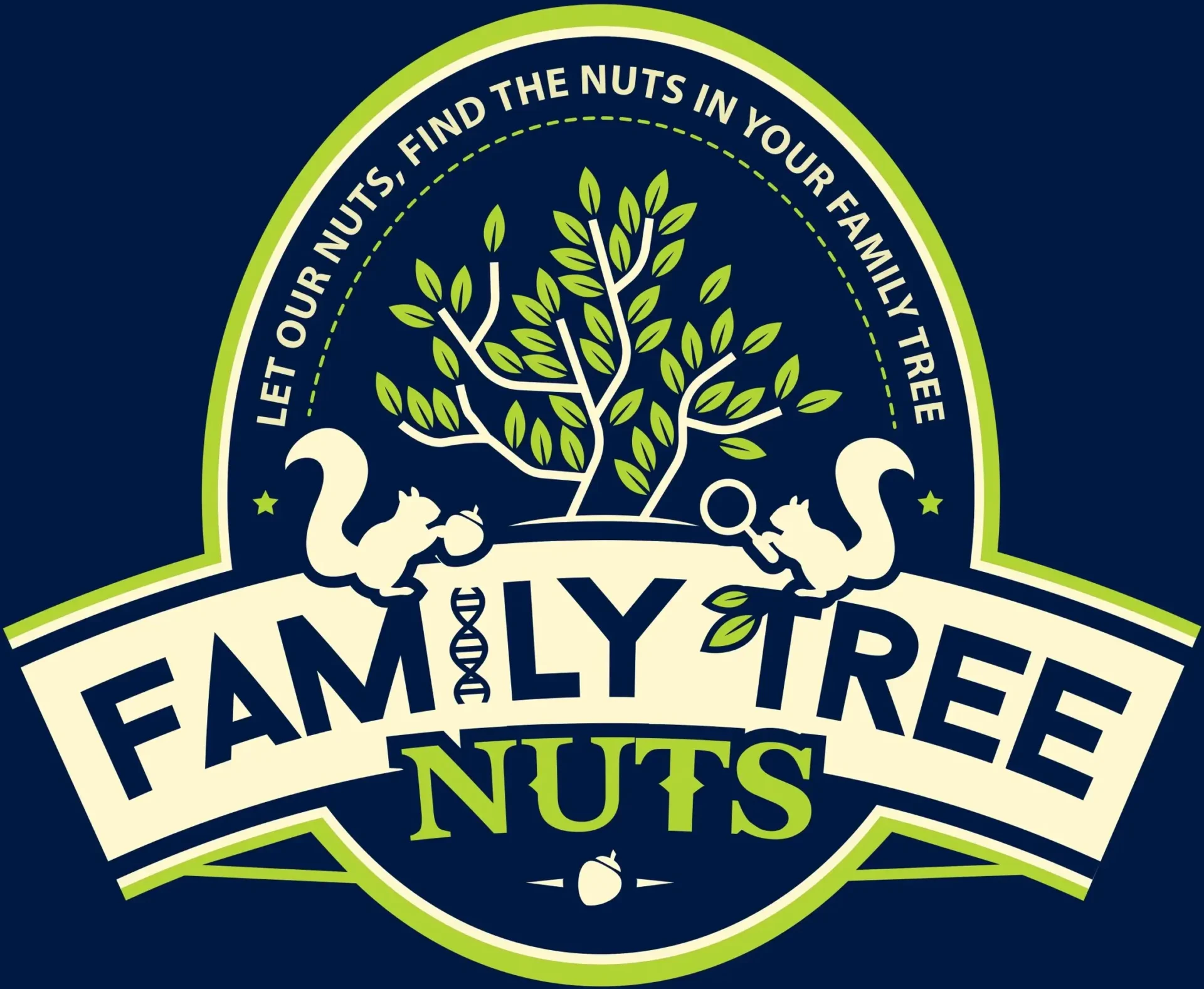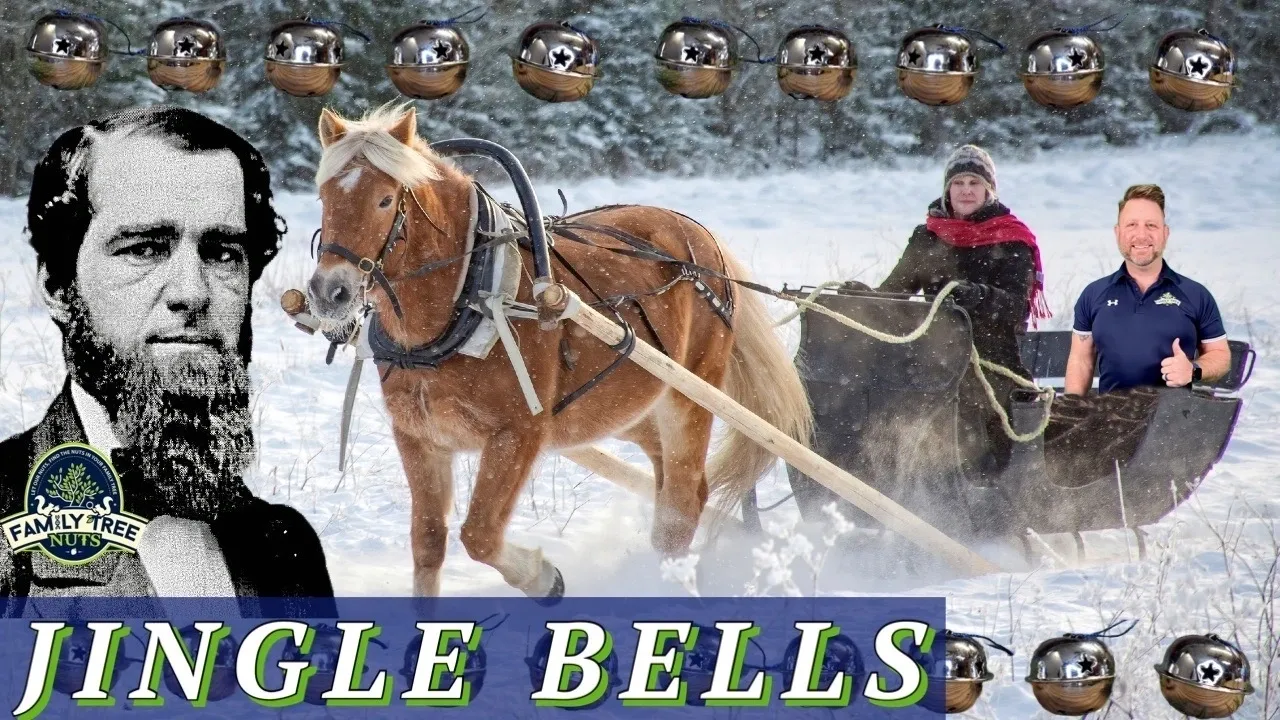
CONFEDERATE THAT WROTE JINGLE BELLS! CHRISTMAS SONG HISTORY!
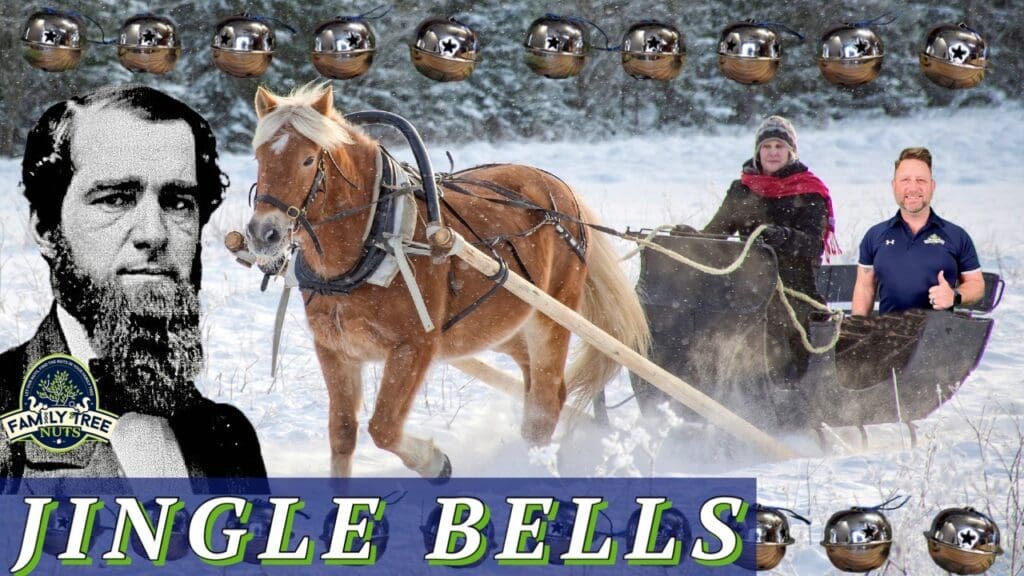
We all know the classic song Jingle Bells, but do you know its history? Did you know it was written by a Confederate soldier that fought in the Civil War? Wait, it doesn’t snow in the south, what did he know about sleighs and snow? But wait, he was from Massachusetts, and they know plenty about snow. Wait again, he was from Massachusetts and fought for the Confederate States of America? Stay with me and I’ll tell you the short story of the interesting man who had numerous adventures that is best known for his song Jingle Bells!
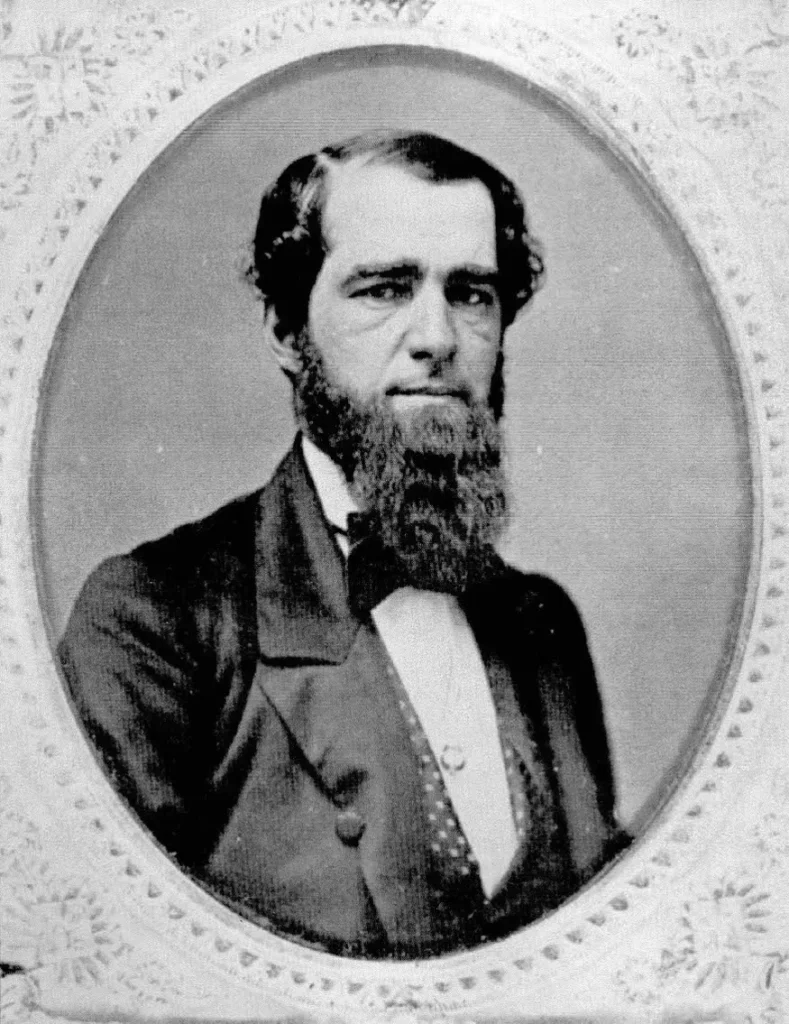
The composer of Jingle Bells was a man by the name of James Lord Pierpont, who was born in 1822, in Boston, Massachusetts. His father was Reverend John Pierpont who pastored the Hollis Street Unitarian Church, in Boston. The Unitarian Church was known for its strong stance on abolition. James had a sister named Juliet, whose son was John Pierpont Morgan, the “bazillionaire” who most of us know today as J.P. Morgan. We will save James’ very famous nephew for a different day, and focus on Jingle Bells.
When James was ten-years-old, he attended a boarding school in New Hampshire and it was here that he went on his first sleigh ride in the snow. He even wrote a letter to his mother expressing, “oh what fun it is to ride in a one-horse open sleigh”. Adventure was calling for young James, and when he was only 14-years-old, he ran away from his school and joined the crew of the “Shark”, which was a whaling ship. After his whaling duty he joined the United States Navy until he was 21, in 1843.
James’ father moved to pastor a church in Troy, New York, so James soon followed and it was here where he met his first wife Millicent Cowee, in 1846. A few years later, in 1849, Reverend Pierpont became the pastor of a church in Medford, Massachusetts. Soon, James sent his wife and two small children to live with his father while he went on his next adventure. James became one of those famous 49ers when he ventured to California to open up a store and work as a photographer. A fire destroyed James’ goods and he soon returned home completing yet another adventure.
Tragedy struck when in 1856 when James’ wife Millicent died. James’ older brother John, Jr. had become a Unitarian minister like his father, and became the pastor of a church in Savannah, Georgia. James soon followed him to be the music director and the organist of his brother’s church. It was at this time that he began to compose songs, some of which were used in minstrels. James soon married Eliza Jane Purse, who was the daughter of Savannah’s mayor, which solidified his permanent roots in the south.
Thought to be originally written in Massachusetts, in 1850, James’ song “The One-Horse Open Sleigh” was published and copyrighted in the fall of 1857. It was first performed on Thanksgiving of that year by a Sunday school choir in Savannah. The song evolved into the one we know today as, “Jingle Bells” and is one of the most known songs in all the world.
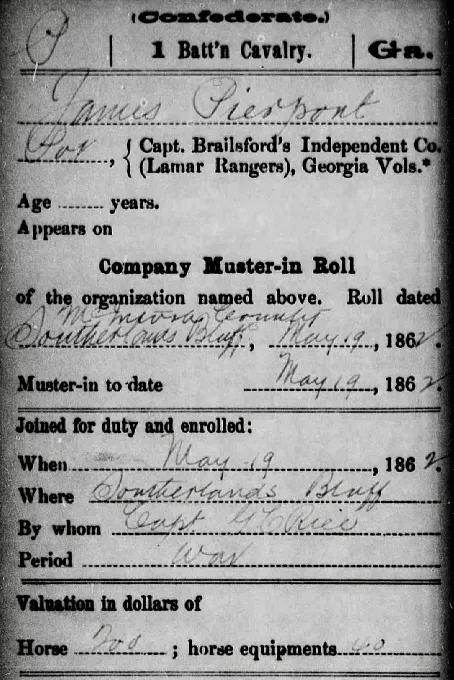
As I stated earlier, the Unitarian Church was known for its stance on abolitionism which obviously wasn’t a popular view in the south. In 1859, James’ brother closed the Savannah church and returned back North. James chose to stay with his wife in Savanah, which led to his next adventure of fighting for the Confederacy during the entirety of the Civil War. Within weeks after the attack on Fort Sumter, which ignited the war, James enlisted as a private with the Lamar Rangers, which became part of the 1st Georgia Cavalry. He supplied his own horse and supplies.
James didn’t see much action until 1863 when his unit became part of the 5th Georgia Cavalry. They took part in the battles of the Atlanta Campaign and the Campaign of the Carolinas. While he served, he wrote music for the Confederate States of America, including “Our Battle Flag”, “Strike for the South”, and “We Conquer or Die”.James served until his unit was mustered out after Appomattox in April 1865. He had served literally from the start, to the finish of the war. Another interesting note is that his father had served as a chaplain in the Union Army for the 22nd Massachusetts. This is yet another example of how so many families were split during this awful time in American history.
For the rest of James’ life, he taught music, served as a church organist, and eventually retired as the head of the music department at the Quitman Academy. In Quitman, Georgia. During his lifetime he made very little money from his now world-famous song, “Jingle Bells” and his son Dr. Juriah Pierpont struggled to keep his father’s name on the copyright. James died at his son’s home in Winter Haven, Florida. At his request he was buried in Laurel Grove Cemetery, in Savannah, Georgia, next to his brother-in-law Private Thomas Purse, Jr., who was one of the first soldiers to be killed in the Civil War, when he fell at the First Battle of Bull Run.
So now you know the story of the Confederate that wrote Jingle Bells. What do you think? Does knowing this information influence your opinion one way or another about this Christmas icon that we all sing? What do you think about the exciting life of its composer? We’d love for you to comment below with your thoughts.
James Pierpont led a life with many adventures, from working on a whaling ship, serving in the U.S. Navy, being a California 49er, becoming an accomplished musician and composer, to serving on the opposite side as his family in the Civil War. So now maybe sometimes when you are full of Christmas spirit and join in the famous song, you will remember James Pierpont. Be sure to see the video below about this story.
-Col. Russ Carson, Jr., Founder, Family Tree Nuts
